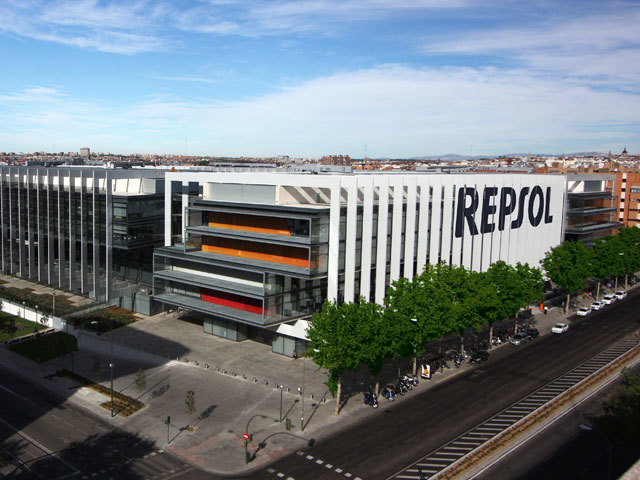
Repsol SA joined its European peers in calling for governments to agree on carbon pricing at a United Nations climate summit later this year, expanding the group of energy companies seeking a voice at the meeting.
Repsol on Tuesday signed the letter that BP Plc, Eni SpA, Royal Dutch Shell Plc, Statoil ASA, Total SA and BG Group Plc released earlier this month asking for a global price for carbon.
The addition of Spain’s largest oil company to the group further highlights the division within the global oil industry as the top American companies, Exxon Mobil Corp. and Chevron Corp., decided to stay out of the European initiative.
Repsol saw “great value in pushing for a unified approach to solving” the climate change challenge, said Kristian Rix, a spokesman at the Madrid-based company.
The push by Europe’s oil companies comes as the Group of Seven richest nations is pushing to “decarbonize” the global economy, meaning that any polluting gases from burning oil, gas or coal must be canceled out by carbon-capture or other technologies by 2100, the G-7 said Monday in a statement.
“Deep cuts in global greenhouse-gas emissions are required with a decarbonization of the global economy over the course of this century,” the group said following a summit in Germany hosted by Chancellor Angela Merkel.
The letter from the European oil companies comes after efforts to reduce fossil-fuel investments and spur renewables such as solar and wind gathered pace in the past two years.
The European firms are more sensitive to environmental issues because governments in the region are leading the way on climate negotiations and voters are demanding action.
“Climate change is a critical challenge for our world,” the heads of the European energy companies wrote to the top UN official in charge of climate talks last week. “We need governments across the world to provide us with clear, stable, long-term ambitious policy frameworks.”
The letter to Christiana Figueres, the executive secretary of the UN climate body, and Laurent Fabius, the French foreign minister, promotes natural gas as the least-polluting of fossil fuels, in opposition to coal.
Today, Repsol produces more gas than oil. After the $13 billion acquisition of Talisman Energy Inc., agreed in December, gas will account for roughly 55 percent of its output.
Repsol Chairman Antonio Brufau said last year that since climate change is linked to energy, the oil and gas industry “should not be part of the problem but part of the solution.”
The Spanish company compensates top management with monetary rewards for achieving certain targets related to climate change, it said in a report to the Climate Disclosure Project.
Recommended for you
